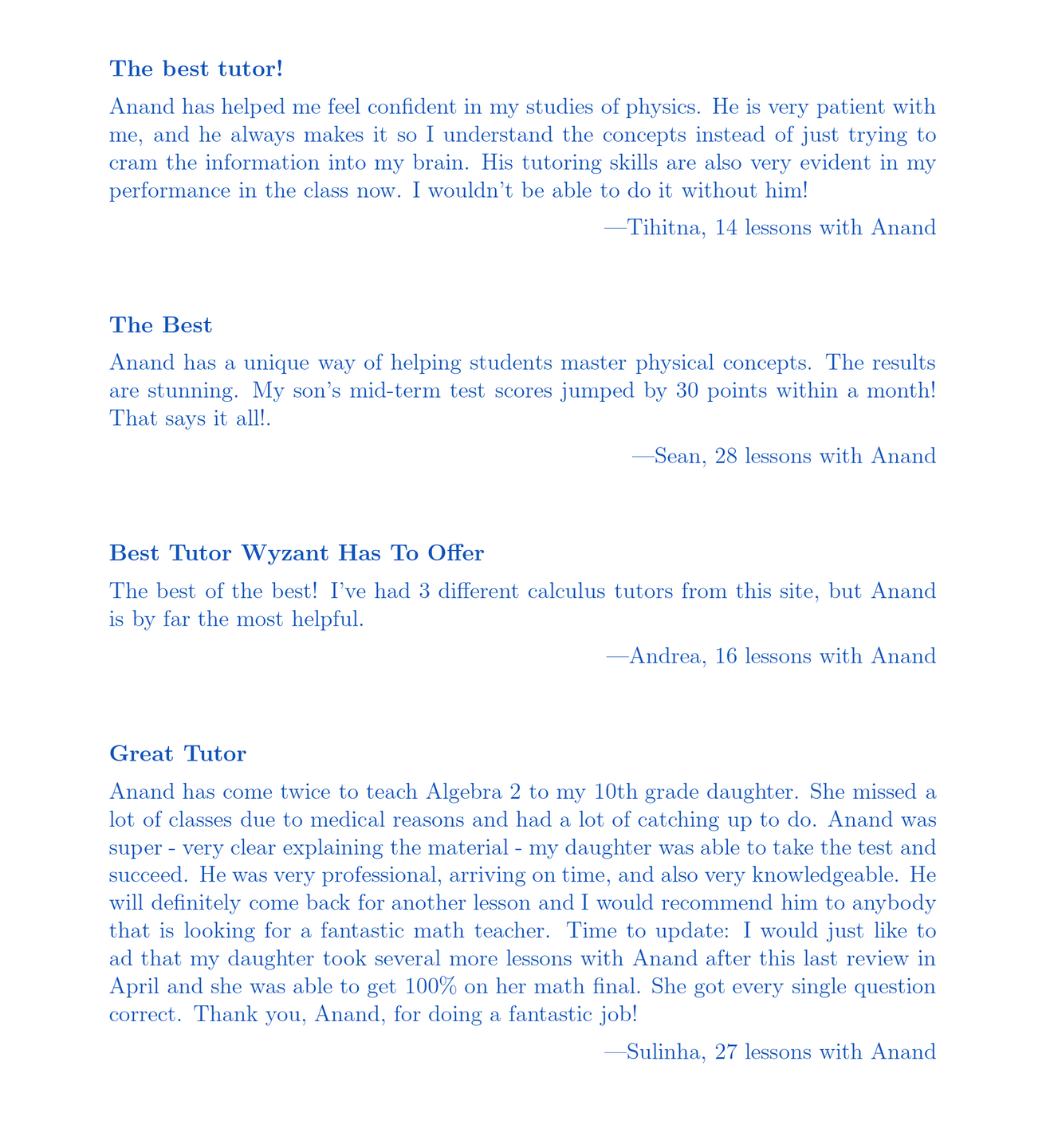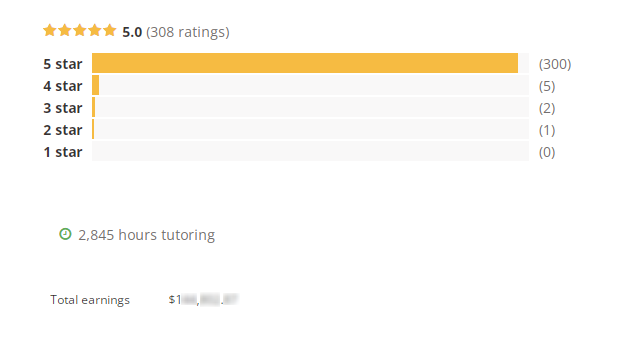Intermediate Algebra:
the Gatekeeper Math Course
The math class which can open up all the possibilities instead of blocking a student's progress.
In this course the student who is good at math, yet feels frustrated by the memorization of endless disconnected "nuggets of information", will learn Intermediate Algebra [Algebra 2/PreCalculus] and general learning processes in a structured, cohesive way, giving them confidence in quantitative subjects in high school, college and their professional careers.
Before we talk about this transformative course, let's talk about the student it's really for:
You are interested in quantitative subjects, whether traditional STEM (science, technology, engineering, and math) or the mathematical side of other fields like social sciences and business, and want to be a great student and math student.
- You enjoy science or engineering, get slowed down by the math, and you want a strong math foundation to support your interests while also more effectively learning your field.
- You used to be great at math, but with more advanced classes the material became more difficult. You want to get back to your level of excellence, and realize that new approaches are needed to get you there.
- You "got by" in math class in the past, and know this is going to catch up to you before long. This is especially true as parts of perhaps two school years were affected by pandemic lockdowns.
You're in the right place!
Now let's talk about how "Intermediate Algebra" will transform your connection with quantitative academics.
By the end of this course:
- Move away from the feeling of "I don't know what I do know" to having a sense of the connections, patterns and structures in the subject being studied.
- When learning a new topic in math class, see how to generalize the examples and understand the underlying derivations.
- When assigned several similar homework questions, solve for a general equation to answer them.
- When seeing a complex problem, be able to deconstruct it into simpler, familiar components.
- Use both the class and the textbook to learn material more effectively and efficiently.
- For a test, be able to summarize the material into a coherent set of notes. Then at the end of the class, use those notes to efficiently prepare for a final exam.
Trust is Key
"Who is this person, and how can I be confident that he can help my student?"
Qualifications
- B.S. in Physics, Massachusetts Institute of Technology
- Ph.D. in Physics (Computational Astrophysics), MIT
- Extensive teaching experience as both an undergraduate and graduate student.
- Worked in the R&D dept of a software company
- Freelance tutor since 2014
Why tUP is different
This course will combine some basic principles of several fields:
- Mathematics for algebraic manipulations
- Physics for problem solving
- Computer science for abstraction and algorithms
It will incorporate learning techniques which were used effectively by me, my students, and friends in college and graduate school, subsequently refined while tutoring.
All this has been used to determine
- What students have difficulty with
- Why these cause trouble
- How to help students resolve these issues
Schedule
Typically, this course would be paced over around 8 weeks. Because students have different schedules and needs during July and August, the course will be released over 4 weeks, on July 25 and Aug 1,8,15, 2022.
Enroll in
Intermediate Algebra:
the Gatekeeper Math Course
today!
Enrollment will be open until Sunday, July 24, or until all seats are filled.



What is included?
- Video lectures covering the material in the course outline.
- Students can submit questions and a weekly "Recitation" video will be produced answering a selection. These will continue through Aug 26, 2022.
- Study guides will be provided.
Intermediate Algebra
Course Contents
- Functions, part 1
- Basics of functions: definition, properties, transforms, inverses, composites
- Linear
- Quadratic
- Functions, part 2
- Polynomial, rational
- Exponential, logarithmic
- Trigonometric
- Advanced topics, part 1
- Probability
- Statistics
- Linear Algebra: vectors, matrices
- Advanced topics, part 2
- Analytic Geometry: circles, ellipses, parabolas, hyperbolas
- Sequences, series
- Calculus: limits
the Understanding Pursuit
Learning Philosophy
Students can be frustrated because they feel like many disconnected "nuggets of information" are thrown at them. They work on many questions, search for formulas, and plug-and-chug with little purpose except to "get it done".
At the Understanding Pursuit, the approach has a foundation of making connections, identifying patterns, and creating structures to hold the ideas being presented. This leads to learning the material better and having stronger problem solving techniques.
-
The tUP learning method starts with the same topics as typical classes, then shows the structure going down to subtopics and subsubtopics for the key material. This takes a large entity and allows the student to learn and understand it in smaller pieces, while maintaining a sense of where it fits into the whole.
Part of understanding the core ideas is being able to view it from different directions, partly by emphasizing the properties and partly through algebraic manipulations. For all of this to happen, the biggest change is inviting the student to "The Sanctuary of No Numbers". Keeping the material more general allows it to be used more broadly.
With this, a topic may have only a half-dozen key pieces, making it easier to identify them in problems, while knowing the various views is "pre-solving" parts of the problems.
-
The problem solving process focuses on deconstructing the problem into subcomponents which are already familiar. A question, as asked, may appear to be at "Level 4" (out of 5) difficulty, but when split into 2-4 parts, each at Level 1-2, the overall problem is reduced to Level 2. And because the subcomponents are often pre-solved, the main work is connecting them together to synthesize the complete answer.
-
Both aspects are extensible to more advanced classes. The learning method is largely unchanged because the greater number of ideas all have their place in the overall structure of the topic. Most often the change is to add another layer while keeping similar connections between layers.
The problem solving process handles the added complexity seamlessly. As a question grows from 2-3 parts to 4-6, each one still only uses familiar material and the process to connect them is unchanged. With this, a problem category that might have had dozens of seemingly distinct questions now may have hundreds, and all can be understood and solved with a relatively small increase in effort.
Bonuses
- A podcast with each lesson providing a synopsis of the lesson for the "parent".
- Full access to the next iterations of this course through June 2023.
- A Founding Member Discount of 10% for all subsequent courses.
tUP Curriculum
[Projected through 2023]
- Foundations
- Math Foundations & Organized Learning
- LaTeX: Mathematical Text Formatting
- Logic & Proofs
- Mathematics
- Intermediate Algebra
- Geometry
- Calculus 1 & 2
- Probability & Statistics
- Physics
- Physics 1 & 2, Algebra-based
- Physics 1 & 2, Calculus-based
- Chemistry
- General Chemistry
- Computer Science
- Introductory [Python]
- Intermediate [Python]
- Advanced [C, Scheme]
Guarantee
- Refunds must be requested by Jul 31, 2022.
- Three exercises of derivations must be completed, showing that some of the work was done in good faith.
With those two requirements satisfied, a full refund will be granted.
Should I sign up now or wait?
Is this different than what is taught in school?
Will I be uncomfortable?
Why is this better than YouTube?
Schedule
Typically, this course would be paced over around 8 weeks. Because students have different schedules and needs during July and August, the course will be released over 4 weeks, on July 25 and Aug 1,8,15, 2022.
Enroll in
Intermediate Algebra:
the Gatekeeper Math Course
today!
Enrollment will be open until Sunday, July 24, or until all seats are filled.


